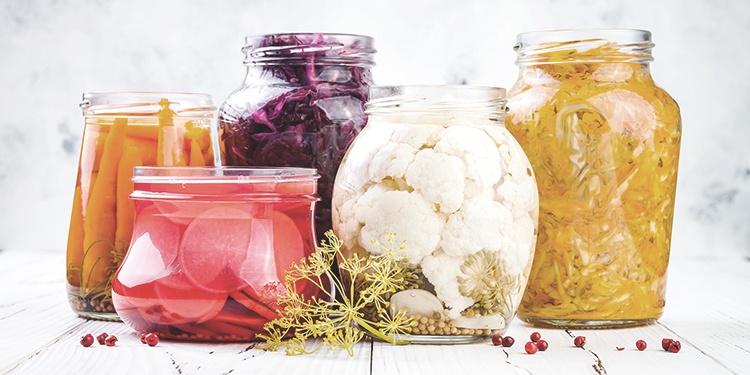Subscribe to our newsletter
Receive news and benefits on health and wellness.

SHA Magazine Healthy Nutrition
A good diet determines good digestive health, which in turn has a decisive influence on overall health, and prebiotics and probiotics play a key role.
Since the introduction of the concept of “functional foods” in Japan in the 1980s, there has been a growing interest in prebiotics and probiotics, which are currently experiencing a boom as we become more aware of the value of healthy living.
What is interesting about both? Both prebiotics and probiotics provide health benefits through the modulation of the gut microbiota. We have more and more information about their health benefits and the next step is obvious: raising awareness of the importance of their consumption.
Prebiotics and their benefit on the gut microbiota
A dietary prebiotic is a selectively fermented ingredient that promotes specific and beneficial changes in the composition and activity of the gastrointestinal microbiota.
“They promote the growth of good bacteria by providing them with different substrates. They work in the large intestine or colon, where the bacteria of the intestinal microbiota ferment them”, explains Dr. Amina Alani, digestive health expert at SHA Wellness Clinic.
Prebiotics include fructooligosaccharides (FOS) or fructans, maltodextrin, resistant starch, lactulose and galactooligosaccharides (GOS) from breast milk.
“Most prebiotics are found in plant foods and breast milk. The main sources are garlic, onions, artichokes, bananas and other fruits, honey, wheat, oats and other cereals, soya and other legumes, asparagus, chicory and leeks”, adds Dr Ámina Alani.
Probiotics, in search of healthy ageing
The word “probiotic” has its origin in Latin and etymologically it means “for life”. It was first used in 1954 to indicate what substances are required for healthy living and today the concept has evolved to be known, as defined by the FAO, as “living micro-organisms which when administered in adequate amounts confer a health benefit”.
The dependence of gut microbes on the food we feed our bodies allows us to take steps to modify the flora in our bodies and to replace harmful microbes with helpful microbes.
Over the years, research has focused on the close relationship between gut microbes, the influence of diet on the prevention of digestive problems and its link to healthy ageing.
“It is essential to increase the consumption of probiotic foods, and some of the most popular are sauerkraut, kimchi, miso and kombucha. Plant-based and fermented yoghurts in general are also natural probiotics that enrich the microbiota”, adds Dr Ámina Alani.
SHA Wellness Clinic and digestive health care through nutrition and supplementation
Aware of the importance of intestinal health in healthy ageing, SHA Wellness Clinic has designed a specific plan, the Focused Pack Digestive Health, in which treatment and prevention are approached from an holistic perspective.
Diet is the basis of any digestive plan, but this must also include a multidisciplinary approach that also includes aspects such as physical and mental care, together with correct stress management.
Moreover, it is important to remember the importance of supplements, which can help fill the gaps where food sometimes falls short.
Thus, the SHA Probio supplement is especially indicated for the treatment of gastrointestinal disorders thanks to its composition of hardy bacterial strains, fibres, saccharomyces boulardii (a natural yeast) and aloe vera.
Receive news and benefits on health and wellness.
